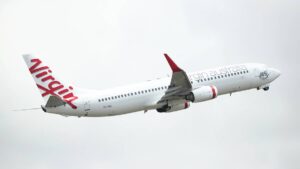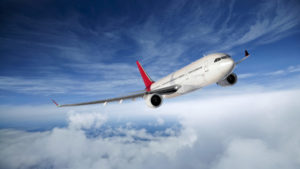Webjet’s demerged company set to list on ASX; what this means for potential investors

Pic via Getty Images
- Webjet’s retail arm set to debut as a separate ASX entity
- The rationale behind the demerger and why it should unlock value
- Should investors buy the new company’s shares?
Webjet (ASX:WEB), the online travel booking giant, is about to split its consumer operations (Webject B2C) and business operations (WebBeds) into two separate ASX-listed companies.
The demerged consumer side is set to make its debut on the ASX on September 23 under the ticker WJL.
Just to remind investors, this new listing isn’t quite like an IPO, as it’s not a brand-new company entering the market.
Webjet’s move comes after a stellar FY24 performance where the company reported a net profit of $128.4 million, a big jump from the previous year’s $69.4 million.
Most of that growth came from its B2B hotel booking segment WebBeds, which has thrived as both corporate and leisure travel rebound to near pre-pandemic levels.
Webjet now plans for each new company to focus on its own unique strategies and growth opportunities.
The first company, renamed WEB Travel Group, will include WebBeds, which connects hotel and travel suppliers with a global network of buyers. It will keep the current ticker, WEB.
The second company, Webjet B2C will bring together Webjet’s consumer-facing businesses.
This includes Webjet OTA for flights, hotels, and travel packages; GoSee for comparing and booking rental cars and motorhomes; and Trip Ninja for managing complex travel plans.
This new entity will list on the ASX under the ticker WJL.
Why demerge?
Webjet’s online travel agency business has been a big player, booking millions of flights over the years, but it’s been overshadowed by its B2B hotels business, WebBeds.
WebBeds is growing fast and making heaps of money, while the online travel arm hasn’t quite kept pace.
The rationale for the split here is to let each part of the business shine on its own.
The move is all about giving both sides the chance to grow more effectively and attract investors who are keen on simpler, more focused businesses.
One primary benefit of a demerger is that it allows the main business to focus more on what it does best.
In other words, if some business areas aren’t performing well or don’t fit with the company’s long-term goals, separating them can allow each unit to follow its own path and perform better.
While being a conglomerate like Wesfarmers or Goodman Group offers benefits such as risk diversification, demerging can unlock even more value by allowing each unit to concentrate on its core strengths.
Analysts are bullish
Some experts reckon the demerger could be a real win for WebBeds. Analysts at IG, for example, are pretty bullish, keeping their Buy rating on the stock.
“Webjet demerger could unlock significant value for WebBeds,” read a note from IG.
“A bull case scenario could unlock more than 30% value for shareholders. We retain our Buy for Webjet given continued strong growth opportunity, regardless of upside valuation on a demerged entity.”
IG said that finding a direct comparison for a B2B software company like WebBeds, with its transaction-based earnings and 50% EBITDA margins, can be tricky.
But the analysts noted that Carsales.com (ASX: CAR) may provide a decent benchmark due to its similar product range, growth, and margins.
While Carsales is trading at about 22x EV/EBITDA, Webjet is roughly at 13x, meaning there could be some upside for WebBeds post-demerger, IG said.
Recent demergers from companies like Woolworths and Endeavour, The Lottery Corp and Tabcorp, and Iluka and Deterra show how spinning off parts of a business can be a win for shareholders.
“Initial demergers often provided shareholder value as investors prefer pure-play exposures over potential conglomerate discounts,” said IG.
How the market will value the new company, WJL
Also according to IG, assessing the value of Webject’s B2C consumer business (new ticker WJL) is key here.
The big question is how much the market will value WJL, which is generally considered lower quality.
Given that this new entity, WJL, will be smaller —under $500 million — it’s likely to face a discount due to lower liquidity.
“There are few pure-play listed online travel agents, making relative valuation challenging,” said IG.
However, IG also noted that if we look at travel sector peers like Flight Centre (ASX:FLT) and Corporate Travel Management (ASX:CTD), which are trading at about 9x EV/EBITDA, we can use them as a baseline for WJL.
“We believe that Webjet [WJL] could attract an M&A premium, and a merge with Helloworld Travel (ASX:HLO) or another opportunity could make sense and deliver additional upside.”
What happens next
The demerger will happen through an in-specie dividend and capital reduction.
Basically, shareholders will get one Webjet B2C share (WJL) for every Webjet share (WEB) they already own, while keeping their original WEB shares.
After the split, WEB will change its name to better match its WebBeds business. Both companies will then be listed on the ASX.
Katrina Barry will take the reins as CEO of WJL, bringing her solid background in tech and travel. She’s stepping down from the WEB Board to focus on this new role.
Layton Shannos will be the CFO, and Don Clarke will be the Chair, with Brad Holman and Shelley Beasley as Non-Executive Directors.
For WEB, Roger Sharp will stay on as Chair, and John Guscic will continue as CEO.
Both WEB and WJL will have net cash positions, with WEB holding $250 million in convertible notes.
Related Topics
UNLOCK INSIGHTS
Discover the untold stories of emerging ASX stocks.
Daily news and expert analysis, it's free to subscribe.
By proceeding, you confirm you understand that we handle personal information in accordance with our Privacy Policy.








